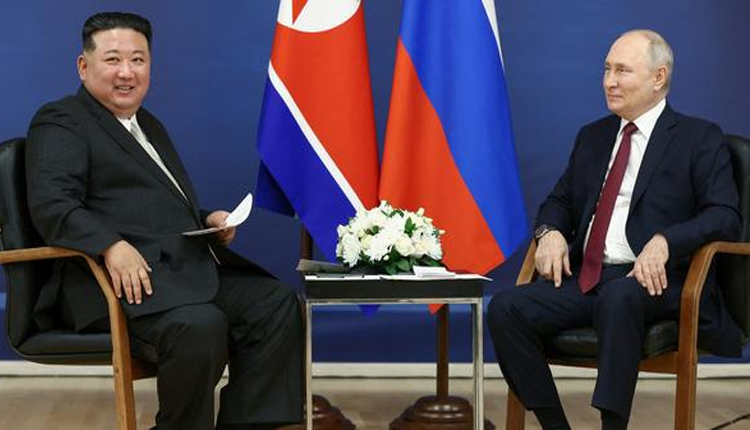New Delhi: In a striking display of geopolitical alignment, North Korean leader Kim Jong Un attended China’s Victory Day parade in Beijing, standing shoulder-to-shoulder with Chinese President Xi Jinping and Russian President Vladimir Putin.
The event, commemorating the 80th anniversary of Japan’s defeat in World War II, served as a powerful symbol of trilateral unity amid rising global tensions.
Kim’s presence at the parade — his first in China in over a decade — was viewed as a strategic gesture underscoring North Korea’s deepening ties with Beijing and Moscow. The parade showcased advanced military hardware, including intercontinental ballistic missiles and hypersonic systems, sending a clear message of deterrence and solidarity to the West.
The three leaders were seen engaging in cordial exchanges, with Kim reportedly praising China’s military prowess and reaffirming North Korea’s commitment to regional cooperation. Analysts suggest that the event marks a new chapter in Eurasian diplomacy, with the trio positioning themselves as a counterweight to Western alliances.
China’s Victory Day parade, traditionally a domestic affair, took on global significance this year with the inclusion of high-profile foreign dignitaries. The parade also featured tributes to fallen soldiers and historical reenactments, reinforcing narratives of resistance and resilience.
Observers noted that the timing of the parade — amid ongoing tensions in the South China Sea, the Korean Peninsula, and Eastern Europe — adds layers of strategic messaging. The trilateral show of force is likely to influence diplomatic calculations in Washington, Tokyo, and Seoul.
As the world watches this evolving axis, the Beijing parade may well be remembered as a defining moment in 21st-century geopolitics.



Comments are closed.